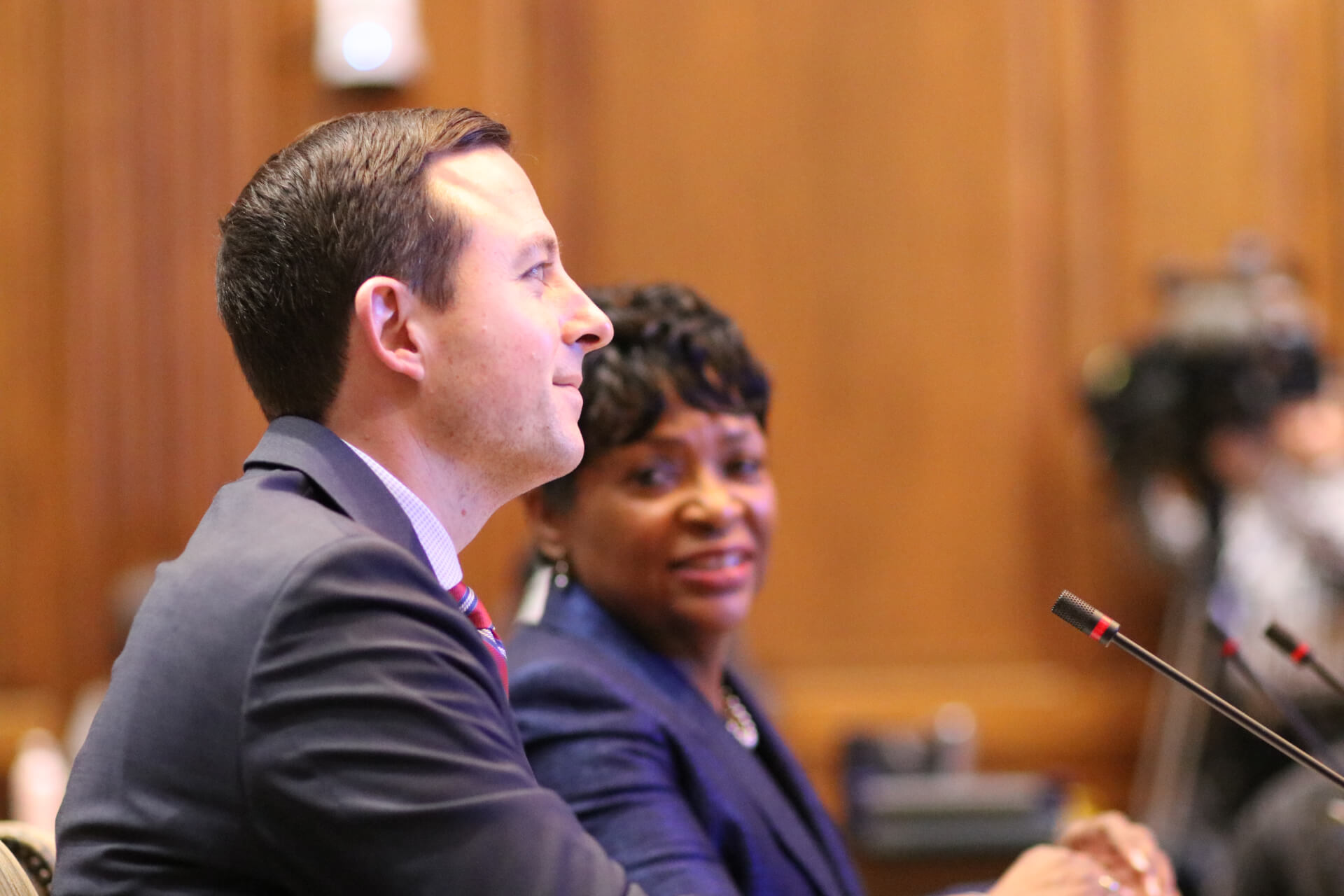Maryland Legislative Leaders Seek to Adjust Blueprint Plan After One-Year Delay

Since the Maryland General Assembly passed a multi-billion-dollar education reform bill a year later than intended, the presiding officers are seeking a complementary bill that would adjust its timeline and address the learning loss that occurred during the coronavirus pandemic.
Over the next decade, the Blueprint for Maryland’s Future will expand pre-kindergarten programs and career education for high schoolers, increase pay and career opportunities for teachers and funnel additional support to schools with high concentrations of students from low-income families.
Last year, Governor Lawrence J. Hogan Jr. (R) vetoed the bill, claiming that it was untenable to raises taxes during an economic downturn induced by the coronavirus pandemic in order to fund the Blueprint plan. But last month, the General Assembly overrode his veto, and it is now enacted into law.
To account for this one-year delay, Senate President Bill Ferguson (D-Baltimore City) and House Speaker Adrienne Jones (D-Baltimore County) are proposing an emergency bill that would adjust the Blueprint legislation so that its programs generally extend by a year. It was heard in committees of both chambers on Monday.
In response to the pandemic, the measure would also increase funding for digital devices and behavioral health support, require local school systems to implement tutoring and summer school programs and nix this school year’s abnormally low enrollment numbers in funding formulas.
“We learned a whole lot in the last year about the gaps and deficiencies that have existed,” Ferguson testified before the Budget and Taxation Committee and Education, Health and Environmental Affairs Committee. “Despite Herculean efforts to try and retain some level of learning in the midst of a pandemic…we have a significant, significant amount of work to do and the work ahead is more important now than it has ever been as we start to reemerge from this crisis.”
Legislators said that the bill is not intended to reevaluate the entire Blueprint plan, but rather to tackle current education gaps and make technical changes to account for the its delayed implementation.
“We’re not trying to re-litigate issues of contention from prior years,” Ferguson continued. “What we are trying to do is make sure that we target our support for the students who need it most at a time of severe social emotional stress that has been caused by this pandemic, while we bridge the digital divide that has certainly lead to disparate outcomes.”
The bill would accelerate funding for schools at the highest concentration of poverty and require local school systems to use federal relief funds for tutoring and summer school programs and to report their plans.
“We’re not just saying spend this money; we’re saying you need to be accountable — show us your plan,” Sen. Paul G. Pinsky (D-Prince George’s) said. “We want to know what kind of tutoring they’re using.”
Under the revised Blueprint plan, state spending will increase by $4.6 million in fiscal year 2023 and to $65.2 million by fiscal year 2026. Meanwhile, local jurisdictions would spend $15 million more in fiscal year 2026, but will be saving almost $70 million since locals would not be required to pay the local share of some funding formulas in fiscal year 2022, according to a fiscal note.
In the House, the bill is being considered by the Appropriations and Ways and Means committees.
At the House hearing, Del. Trent Kittleman (R-Howard) was skeptical about accountability measures to evaluate whether the Blueprint plan was improving student performance, contending that Baltimore City Public Schools have not improved after previous investments.
But Allison Perkins-Cohen, chief of staff of Baltimore City Public Schools, argued that Baltimore City schools have been underfunded by $290 million a year under the current funding formula. There is a strong correlation between funding and student performance, she said.
Advocates supported SB 965/HB 1372 but offered proposals to remove the standardized testing requirement for students receiving extra tutoring, expand emotional support to school staff and ensure the correct number of students experiencing poverty are included in funding formulas.
“The current undercounting hurts students from families with undocumented or mixed residency status in the U.S., who are primarily Latino, African and Caribbean immigrants,” said Shamoyia Gardiner, deputy director of Strong Schools Maryland.
Sean Johnson, executive director of the Maryland State Education Association, argued that local school systems already have assessments that could be used to inform instruction or the effectiveness of tutoring programs, so there is no need for additional state standardized testing.
Earlier this month, the State Board of Education voted to administer statewide diagnostic English and math tests next fall. Federal law requires every state to give annual tests, but the U.S. Department of Education gave states some flexibility to shorten the exam last month due to the pandemic.
Some advocates also expressed concern about the authority of the new accountability board that will oversee the implementation of the Blueprint plan. Rick Tyler of the Maryland Education Coalition said that there should be stakeholder oversight or input over the board’s decisions.
The Senate committees will vote on the bill this week and “hopefully move it fairly rapidly,” Pinsky said.




 Creative Commons Attribution
Creative Commons Attribution